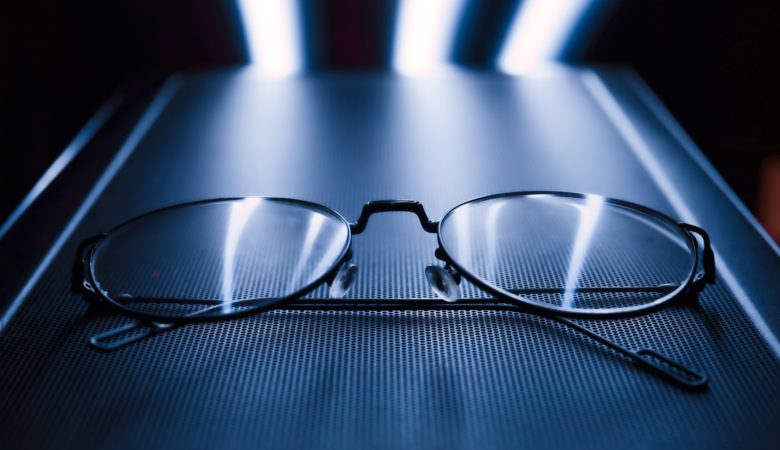Are You Practicing Good Screen Hygiene? Get the Scoop on Blue Light Glasses.

Before the widespread adoption of smart devices, people spent their free time going outside, reading, socializing, exercising and other activities that didn’t rely on a screen. That’s no longer the case. Nielsen discovered that the average adult spends 11 hours a day interacting with screens, from computer monitors to smartphones and tablets. Year over year, these numbers increase.
Why does screen hygiene matter?
Think about what you’re doing when you’re looking at a screen. A significant portion of that 11 hours per day accounts for work, as most jobs require interaction with a screen on some sort of device. But outside of business hours, how are you interacting with screens?
With an instantaneous connection to a wealth of knowledge, the average adult consumes five times more information in a single day than that same person would have 50 years ago. As you endlessly scroll through emails, social media channels and news feeds, your eyes and brain work overtime to process everything you see on the screen.
If you’re spending more time every day looking at a screen than sleeping, you need to take measures to keep yourself healthy. Screens strain your brain and eyes even if we’re having fun looking at a friend’s recent vacation pictures or watching funny animal videos.
How to practice good screen hygiene
The necessity for screen time varies from person to person. For example, a person might spend a lot of their free time staring at a tablet because they’re an avid e-book reader. Or maybe a person spends a considerable amount of time staring at a screen because it’s how they pursue creative endeavors such as art, music or writing.
Regardless, that doesn’t mean you shouldn’t make a concerted effort to reduce the time you spend mindlessly scrolling, especially if you’re not getting anything from the experience. Use apps to measure screen time to monitor your activity.
Also, consider the time you spend on looking at screens compared to the time you spend outdoors or active. There’s been a considerable increase in sedentary lifestyles over the last few decades. A sedentary lifestyle increases your risk of obesity, type 2 diabetes and heart disease. Once a day, step away from your devices to take a walk, workout or practice yoga. Give your body an outlet for built-up energy while letting your mind and eye disconnect from screens.
Screen hygiene and your eyes
If screen time is integral to your job or your favorite hobby, go the extra mile to take care of your eyes. Prolonged exposure to screen causes dry eyes, blurred vision, digital eye strain, retina damage and ocular migraines, and even computer vision syndrome.
One way to minimize the strain screens put on your eye is the 20-20-20 rule. For every 20 minutes you spend looking at a screen, spend 20 seconds staring at an object that’s at least 20 feet away from you. You can incorporate the 20-20-20 rule into the daily walks you’re going to start taking to give yourself a break from screens.
Another method for reducing screen time’s negative effects is investing in a pair of blue light blocking glasses. Even if you have perfect vision, glasses with blue light protection offer much-needed relief from the strain of screen staring.
What is blue light and why do I need to block it out?
Blue light is all around us. The sun, fluorescent light fixtures, compact fluorescent light (CFL) bulbs, LED lights and of course, digital screens (televisions, computer monitors, smartphones and tablets) emit blue light or high energy visible (HEV) light. The HEV light found in sunshine is beneficial to our bodies, as it regulates your circadian rhythm, boosts alertness, increases memory, elevates mood and improves cognitive function.
However, long-term exposure to blue light at a short-range creates adverse side effects. Think about closely you hold your smartphone to your eyes. Where is your computer monitor situated on your desk? How close do you sit to your flat-screen TV? With natural HEV light, the source (the sun) is millions of miles away. With screens, the blue light source is right in your face.
Get blue light glasses
You put sunglasses on to protect your eyes from straining in the bright sunlight. Indoors when you’re staring at screens, blue light glasses provide you with the protection you need to block this detrimental light. The protection comes from a specially-designed formula used to coat the lenses.
If you’re not sleeping well, your eyes hurt or you frequently experience sensitivity to light that causes headaches, consult your eye doctor about blue light blocking glasses. Many find that within a few weeks of wearing these glasses, their health concerns dissipate and they can enjoy screens without strain or discomfort.

